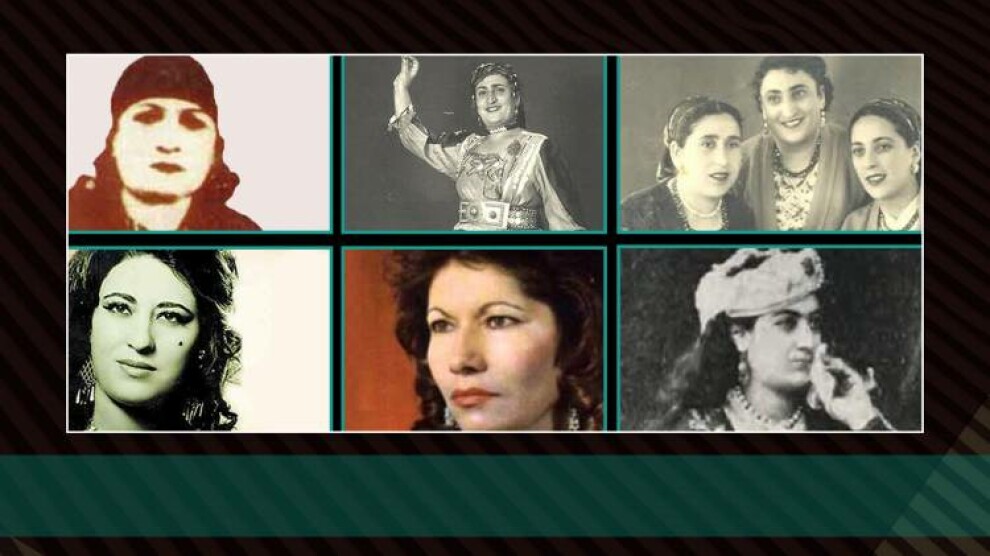Memory of Kurdish culture: Dengbêj (Storytellers)
Their voices listened by generations Touching voices of female dengbêjan (plural of dengbej) generate songs and tell stories. Their voices could be heard in Diyarbakır, Urmia, Duhok, and Qamishlo from Radio Yerevan. Fatma İsa, Susika Simo, Sisa Mecid, Zadina Şakir and Aslika Qadir were among female dengbêjan, who made their voices heard through Radio Yerevan. They brought the Kurdish culture and life to the future with their voices. Female dengbêjan (storytellers), proving the existence of women in every field of art and life, play an important role for Kurdish women to gain status and rights today. We prepare a five-day article series about female dengbêjan from past to today.

Their voices listened by generations
Touching voices of female dengbêjan (plural of dengbej) generate songs and tell stories. Their voices could be heard in Diyarbakır, Urmia, Duhok, and Qamishlo from Radio Yerevan. Fatma İsa, Susika Simo, Sisa Mecid, Zadina Şakir and Aslika Qadir were among female dengbêjan, who made their voices heard through Radio Yerevan. They brought the Kurdish culture and life to the future with their voices. Female dengbêjan (storytellers), proving the existence of women in every field of art and life, play an important role for Kurdish women to gain status and rights today. We prepare a five-day article series about female dengbêjan from past to today.
News Center- Singers, who sing “kılam (song)” and “stran (song of mourning)” in Kurdish oral literature, are called Dengbêj. The word ‘deng’ means voice and ‘bêj’ means ‘to sing.’ Dengbêj tradition includes social science, philosophy, and oral literature and has a political and historical mission. It has been an important means for the Kurds to carry out their culture. The dengbêjan don’t use any musical instrument while singing but sometimes they use erbane (tambourine) and blur (end-blown flute) while singing their songs. A song of Dengbêjan may last hours but the Dengbêjan manage to take the listeners into the stories they tell without boring them.
They form a common national spirit
Dengbêjan play an important role in protecting Kurdish culture and language from assimilation. They also make a great contribution to pass down many stories such as Mem û Zîn and Fatime û Eli. If you carefully listen to the songs of Dengbêjan, you can easily understand the period of the songs. The Kurdish people keep alive their love, sorrow, and history through the tradition of Dengbêj. Female dengbêjan played an important role and made their voices heard by all Kurds live different places through Radio Baghdad and Radio Yerevan. The Dengbêjan form a common national spirit by using their voices.
Women never gave up the tradition of Dengbêj
However, female Dengbêjan also faced many bans in the Middle Ages also called Dark Ages. Women were banned from singing songs because it was a sin for women to sing. No one asked why singing was a sin for women. But women rose against this ban. Despite all bans, female Dengbêjan taught their children how to sing and never gave up the tradition of Dengbêj. Meryem Xan, her cousin Elmas Xan and Eyşe Şan were several of these female Dengbêjan. When their families didn’t allow them to be Dengbêj, they left their families. “Art got into my blood, I cannot live without it,” said Meryem Xan. Dengbêj Sisa Mecid was born in 1960 in Armenia. She sang songs for the Radio Yerevan. Known for her beautiful voice, Sise died on October 21, 2019. She left her voice and timeless songs behind.
Tomorrow: Sûsika Simo: A Dengbêj without borders
